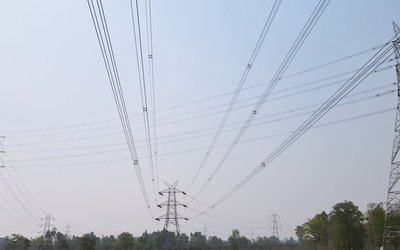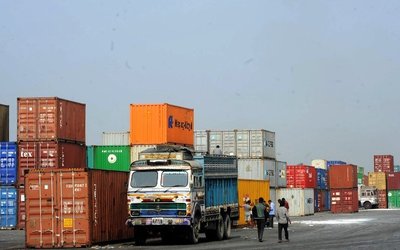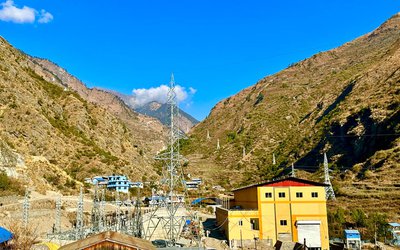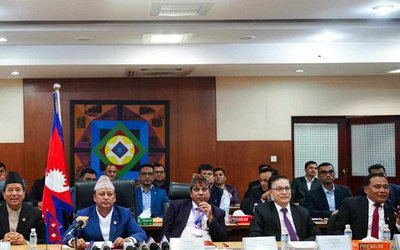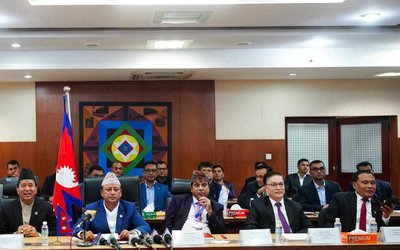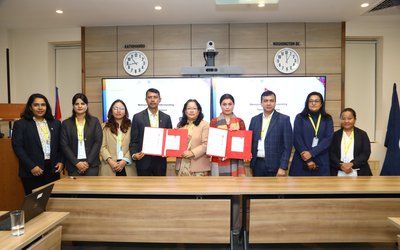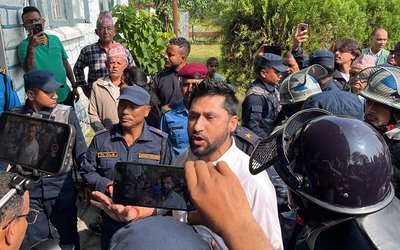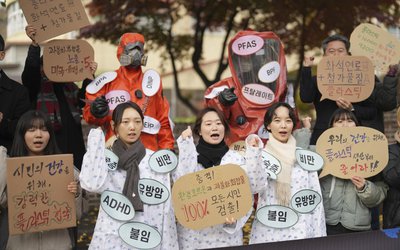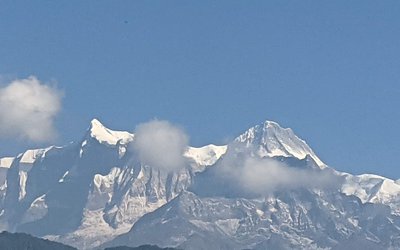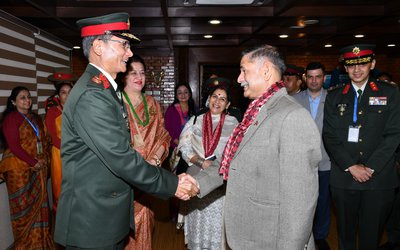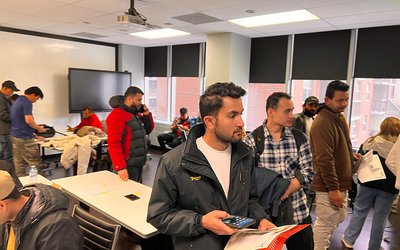
Fridtjof Nansen Institute (FNI),Norway and South Asia Watch on Trade, Economics & Environment (SAWTEE) organized a two-day regional meeting on “Conservation, Use and Exchange of Crop Genetic Resources: Promoting Regional Cooperation for a Food-Secure, Climate- Resilient South Asia”. The objective of the meeting is to bring together experts, policy makers, private sector representatives, academic researchers and relevant stakeholders to discuss issues related to governance of crop genetic resources in the region.
Arjun Bahadur Thapa, Secretary General of SAARC, Chief Guest of the program, said that SAARC has given utmost importance to the conservation, use and exchange of crop genetic resources. He said that due to the vulnerability of the South Asian countries to natural disasters and climate change, regional cooperation needs to advance to generate policy responses to address food insecurity. He opined that the SAARC Seed Bank could be a means to promote regional exchange of seeds important for food security and climate change adaptation.
Dr Kristen Rosendal, Research Director and Steinar Andresen, Research Professor at Fridtjof Nansen Institute, focused on how international agreements governing genetic resources have failed to resolve North-South conflicts on access to and commercial use of seeds.
They called for future actions so as to promote mutual support and secure effective and legitimate division of labor between global regimes governing genetic resources.
Discussing the South Asian contexts and complexities in relation to the governance of crop genetic resources, Kamalesh Adhikari of the RegNet of the Australian National University called for meaningful regional cooperation on climate change, agriculture and food security. He said, “SAARC countries will benefit by developing regional guidelines and models on how to regulate genetically modified seeds; promote access to and benefit sharing from the use of regional crop genetic resources; and protect farmers’ rights to seeds and traditional knowledge”.
Talking about the case of India, Dr. Anitha Ramannna Pathak, Assistant Professor, SP Jain School of Global Management said that though the country is considered a global leader in the design of laws on intellectual property, access to genetic resources, and benefit sharing but the empirical evidence suggests a different scenario and shows that the implementation is weak. She said that the distribution of monetary benefits accrued from access to genetic resources had not been shared equitably with local communities.
Dr Posh Raj Pandey, Chair SAWTEE, has emphasized on the need to consider different paths to enhance regional cooperation. He suggested four pathways for the countries to form a consensus starting with a political one among the participating countries. Second could be evolutionary, creating new organizations and instruments based on past experiences. Third could be implementing regional projects while the fourth being an ancillary path to capture the practical and technical aspects like sharing information. Talking about the High-level Committee on Technology Bank formed by the Secretary General of the United Nations, Dr. Pandey suggested that there was a need to explore if such a technology bank could be used to promote the management and sustainable use of the region’s plant genetic resources and traditional knowledge.
Altogether 50 experts from South Asia working on plant genetic resource related issues, along with government officials, journalists and academicians are participating in the meeting.
- PM Oli's Visit To China: Geopolitical Implications
- Nov 19, 2024
- NEA: Kul Man Ghising, A Cool Man
- Oct 28, 2024
- DASHAIN FESTIVAL : Festival of Unity
- Oct 04, 2024
- NEPAL-CANADA Bilateral Meeting
- Oct 04, 2024
- MIDDLE BHOTEKOSHI: Final Stage
- Sep 23, 2024

